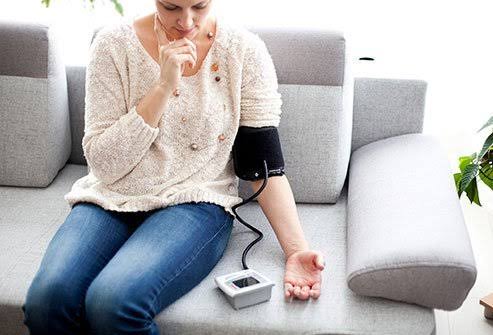4 Reasons Your Blood Pressure Is Low.
[ad_1]
Low blood pressure is blood pressure below 90/60 mm/Hg. In most people, it shows no symptoms. When it does lead to symptoms, these are usually unpleasant or disruptive, such as dizziness and fainting. In some cases, low blood pressure is dangerous, so early diagnosis and treatment are vital.

According to MedicineNet, some of the reasons for low blood pressure are:
1. Heart disease
Weakened heart muscles can make the heart fail and lower the amount of blood it pumps. One common trigger of the weakened heart muscle is the death of a large portion of the heart’s muscle as a result of a single, large heart attack or repeated smaller heart attacks. Other instances of conditions that can weaken the capacity of the heart to pump blood include medications harmful to the heart, infections of the muscle of the heart by viruses (myocarditis), and diseases of the heart’s valves like aortic stenosis that lessen the flow of blood from the heart and into the arteries.
2. Dehydration
Dehydration is common among people with prolonged nausea, vomiting, diarrhoea, or too much exercise, which shunts blood away from the organs to the muscles. Large amounts of water are lost in people’s vomiting and diarrhoea, particularly if the person does not consume adequate amounts of fluid to replace the depleted water.
Other triggers of dehydration are exercise, sweating, fever, and heat exhaustion or heat stroke. People with mild dehydration may experience only thirst and dry mouth. Moderate to serious dehydration may lead to orthostatic hypotension which causes symptoms such as lightheadedness, dizziness, or fainting upon standing. Prolonged and serious dehydration can cause shock, kidney failure, confusion, too much acid in the blood, coma, and even death.
3. Moderate or severe bleeding can rapidly deplete a person’s body of blood, causing low blood pressure or orthostatic hypotension. Bleeding can lead to trauma, surgical complications, or from gastrointestinal abnormalities like ulcers, tumours, or diverticulosis. Sometimes, the bleeding may be so serious and rapid that it leads to shock and death rapidly.
4. Severe inflammation of organs inside the body like acute pancreatitis can lead to low blood pressure. In acute pancreatitis, fluid leaves the blood vessels to enter the inflamed tissues around the pancreas and also the abdominal cavity, concentrating blood and lowering its volume.
Content created and supplied by: Betatalkz (via Opera
News )
[ad_2]

